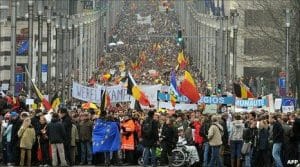Headlines
Belgium: A Small Country with a Big History

Belgium is a country in northwestern Europe that has a long and complex history. It was part of the Roman Empire, the Holy Roman Empire, the Spanish Netherlands, the Austrian Netherlands, the French Republic, the United Kingdom of the Netherlands, and finally became an independent state in 1830. It was one of the founding members of the European Coal and Steel Community and the European Economic Community, which later became the European Union.
See population, official language and more…

Belgium
Belgium was established as a constitutional monarchy with a bicameral legislature and a separation of powers between the executive, legislative, and judiciary branches.
Belgium’s history is intertwined with those of its neighbors: the Netherlands, Germany, France and Luxembourg. It was influenced by various cultures, languages, religions and political movements.
Belgium’s wealth and trade led to the emergence of cities such as Bruges, Gent and Ypres in the Middle Ages. It was also involved in wars, colonization, industrialization and social reforms throughout its history.
Belgium was occupied by Germany during World Wars I and II and suffered from atrocities, destruction and resistance movements.
Belgium prospered in the past half century as a modern, technologically advanced European state and member of NATO and the EU.
Belgium has a complex linguistic and cultural diversity, with three official languages (Dutch, French and German) and several regional dialects and identities.
Belgium has a rich artistic and cultural heritage, with famous painters, writers, musicians, architects and filmmakers.





